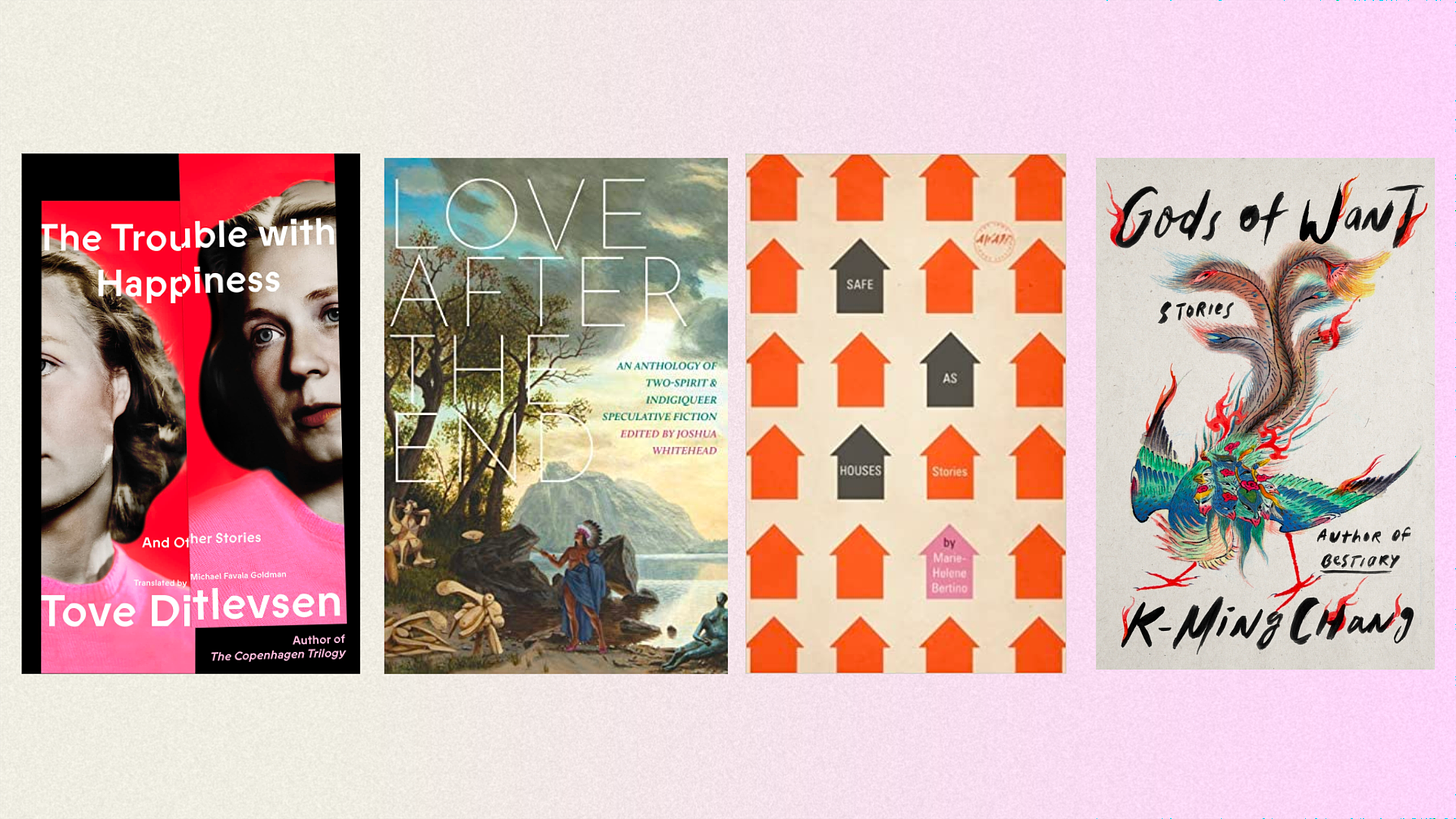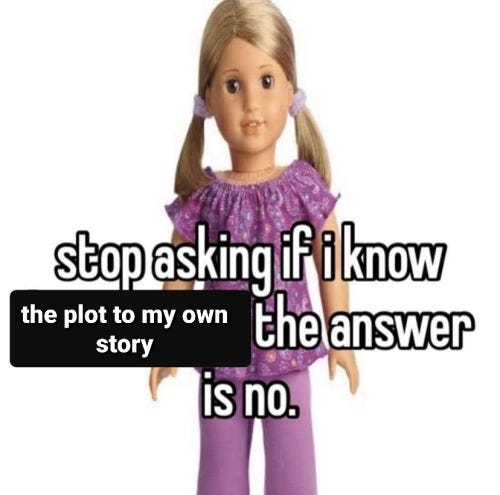Short Stories and Option Paralysis
The panoply of contemporary fiction is dizzying, which is incredible in some ways given that the effort of writing a novel “requires a massive energy” and “is a more diffused form, more suited for those who like to linger along the way,” as Flannery O’Conner puts it. More often than not, the novelist begins as a short story writer. This is an interesting pipeline to consider, given that novel-writing is a distinct practice from writing a short story.
From my limited experience, I have some ideas about why this may be. Perhaps the novelist began short story writing as an opportunity to build their confidence in their artistry. Or even simply to find the intangible confirmation that indeed there is something within them that cannot be expressed in any other way than with fiction. Stories are rich in meaning, and a proper story eludes summary. Perhaps only then do they graduate to writing their dream of a novel. This my be why not every excellent novelist is an excellent short story writer (and vice versa).
The publishing world puts bodies of work out into the world in Frankensteinian ways. I attended a recent panel with author Morgan Talty, whose book Night of the Living Rez is a collection of interconnected short stories. Short story collections usually begin to develop their heartbeat in literary journals. An audience member asked Talty how he was able to publish interconnected stories across various journals and maintain that magic. He said the truth is that, while each story was strong enough to stand on its own, the true magic of his work and the organic unraveling of mysteries only became apparent when presented as the collection it is today.
Publishing also rarely sees an author debut with a short story collection, claiming they “don’t sell” (notable exceptions include Walking on Cowrie Shells by Nana Nkweti, The Secret Lives of Church Ladies by Deesha Philyaw, and Seeking Fortune Elsewhere by Sindya Bhanoo). Usually an author gets their big break with a novel after years in the indie literary circuit, publishing short stories in journals. Then, a publisher may bring together these stories into a collection. Only after the author’s novel has sold well, and they have become a recognizable name. Thus, short story collections can sometimes feel disparate or underdeveloped. They might contain earlier work by an author, before they fully found their footing in novel-writing. But sometimes, short story collection are magic.
So, how does one choose which short story collections to read and purchase? How does one discern the work of a short story artist who is also a novelist (as opposed to a novelist who happened to also write short stories)? For me, a big part of deciding is reading past work and interviews. I also keep my finger on the beat of what is being published. Here is my list of diverse and contemporary short story collections. I try to read a story excerpted from the collection that is free online as my final decision point before choosing what to purchase and read.
Here are some stories from newly released collections I am planning to check out:
“Phillip is Dead” by Meng Jin, from Self Portrait With Ghost
“Smokes Last” by Morgan Talty, from Night of the Living Rez
“A First Rate Material” by Sayaka Murata, from Life Ceremony
Short Story Collections (and how I chose them)
The Trouble with Happiness by Tove Ditlevsen - while I don’t trust that all novelists write good short stories, I have far more confidence in poets. Ditlevsen seems quite genre-fluid, given that I was first introduced to her work by reading her memoir trilogy. She brings such a sense to whimsy to her work, I couldn’t put it away. I can’t wait to discover what her pen lends to fiction.
Love After the End (Anthology) - I found this while browsing one of my favorite presses, and it just checked off all my boxes. I am trying to purposefully read more queer Indigenous work, and speculative fiction is my writing home. Speculative fiction is a genre of possibilities, of world-building and creating alternative possibilities in a limited world. It is a champion genre for the marginalized for this reason, and I know the stories in here will be fresh.
Safe as Houses by Marie-Helene Bertino - Marie was my instructor at Kenyon this summer, and her voice and perspective are indelible. Her workshop was life-changing, and I continue to dive into her world through her fiction. I highly recommend reading this and this to start, and then get your wallet ready.
Gods of Want by K-Ming Chang - this book rewrites Asian American mythologies around immigration through a lens of surrealism and queerness. Chang started in poetry, is a prolific short story writer, and also has a novel out and one more on the way. And she is only 24!!
Readings about Writing (mostly)
COVID is still here and as difficult to navigate as ever, especially as options for boosters emerge and people approach masking on a spectrum of seriousness. Here is a helpful article where experts answer pressing pandemic questions.
Writing in community is not only important, but life-changing. Art is not an activity, but a lifestyle. Here is some advice on how to create a community without attending an MFA.
More great advice from Catapult’s Application Week vertical - I especially enjoyed this article by my friend Hannah on applying to residencies as a BIPOC.
As important it is to clear out our daily lives to write, it is also important to think about the inner life. This is an amazing read.
“As guardian of our inner lives…We must…remember St. Exupery’s words that “what is essential is invisible to the eye.” We must wall off our inner selves from the colonizing part that assesses, quantifies, judges.”
Perhaps an equally important part of building a writer’s life, or any type of life, is disassociating from work stress.
The richness that is a conversation with Ocean Vuong.
As I keep writing, I increasingly feel attuned to this:





As someone struggling to eke out fiction (in part due to my inability to disassociate from work stress), I appreciate all of this resources. Thanks for sharing Swati!